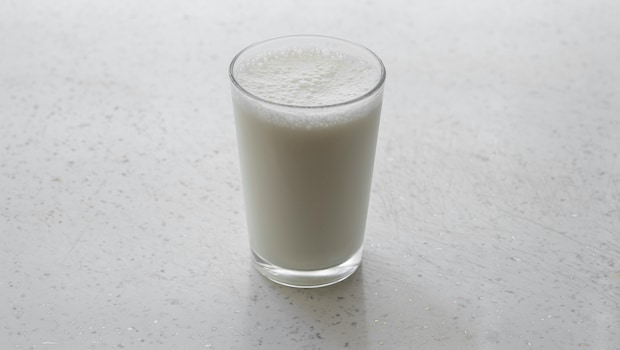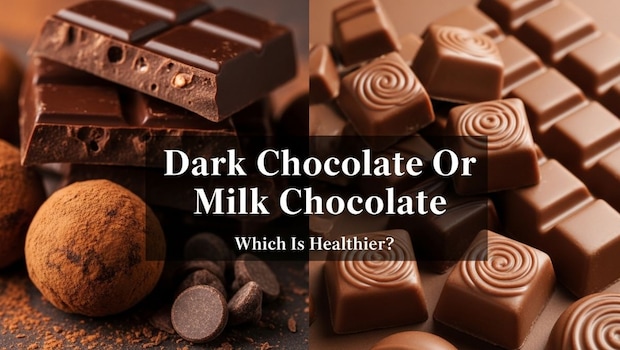Chocolate is one of life's greatest pleasures. Whether it's a post-meal treat or a little pick-me-up on a stressful day, there's something about it that instantly lifts your mood. But when it comes to choosing between dark and milk chocolate, opinions are often divided. Dark chocolate is known for its rich, slightly bitter taste, while milk chocolate wins hearts with its creamy sweetness. Yet, beyond taste, there's a growing debate about which one is better for your health. Both come from the same cocoa bean, but their nutritional profiles are very different. So, let's dive into what sets them apart and find out which one deserves a spot in your guilt-free snacking list.
Key Differences Between Dark Chocolate And Milk Chocolate
1. Cocoa Content
Dark chocolate contains a much higher percentage of cocoa solids - usually between 50 to 90 percent compared to milk chocolate, which typically has 20 to 40 percent. The higher the cocoa, the more antioxidants and flavonoids it contains, making dark chocolate the more nutrient-dense option.

Photo Credit: iStock
2. Sugar Levels
Milk chocolate has a significantly higher sugar content, which gives it that sweet, creamy taste. Dark chocolate, on the other hand, contains less sugar and is a better choice for those who want to cut down on added sweeteners.
3. Milk and Cream Additions
As the name suggests, milk chocolate includes milk solids or condensed milk, giving it a smoother texture. Dark chocolate does not contain milk, which makes it suitable for lactose-intolerant individuals and those following a vegan diet.

Photo Credit: Unsplash
4. Nutritional Benefits
Dark chocolate is loaded with iron, magnesium, copper, and antioxidants that support heart and brain health. Milk chocolate provides calcium from milk, which is beneficial for bone health but lacks the higher concentration of antioxidants that dark chocolate offers.
5. Taste And Texture
Dark chocolate has a stronger, more intense flavour that appeals to those who enjoy a hint of bitterness. Milk chocolate is lighter and creamier, making it more popular among those who prefer a sweeter treat.

Photo Credit: Canva
Health Benefits Of Dark Chocolate
Dark chocolate is rich in flavonoids, which are plant compounds known to improve blood flow, reduce blood pressure and support heart health. A meta-analysis published in the European Journal of Preventive Cardiology, which analysed 145 randomised controlled trials, confirmed that flavanol-rich cocoa consumption significantly improved blood pressure. Studies have also shown that moderate consumption of dark chocolate can improve mood and cognitive function.
Health Benefits Of Milk Chocolate
While milk chocolate may not be as antioxidant-rich, it still offers a few health benefits. The milk it contains adds calcium and vitamin D, which support strong bones and teeth. It can also give you a quick energy boost and elevate mood due to its sugar and fat content. However, the higher sugar and calorie levels mean it should be enjoyed occasionally rather than regularly.
Dark Chocolate vs Milk Chocolate: Which Is Healthier
If health is your top priority, dark chocolate (70% cocoa or higher) is the clear winner. Its high cocoa content, superior antioxidant levels, and lower sugar make it a smarter choice for your heart and mind.

Photo Credit: Unsplash
How Much Chocolate You Can Have In A Day
- Dark Chocolate (70%+): For maximum health benefits, stick to 1 to 2 squares per day, which is approximately 20-30 grams. This portion size delivers the flavanols without adding excessive calories.
- Milk Chocolate: Milk chocolate should be enjoyed as an occasional treat due to its higher sugar content. Limit consumption to a small fun-size bar or a maximum of 15-20 grams once or twice a week.
The best approach is balance. Savour your chocolate but make mindful choices based on your goals when you do.







